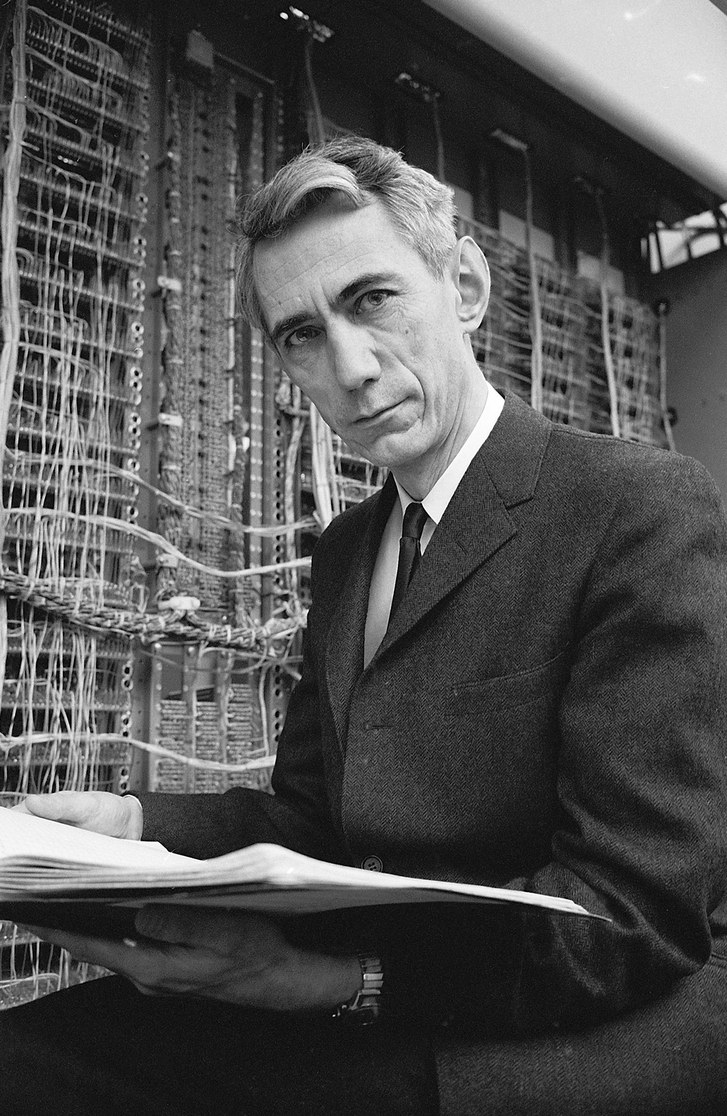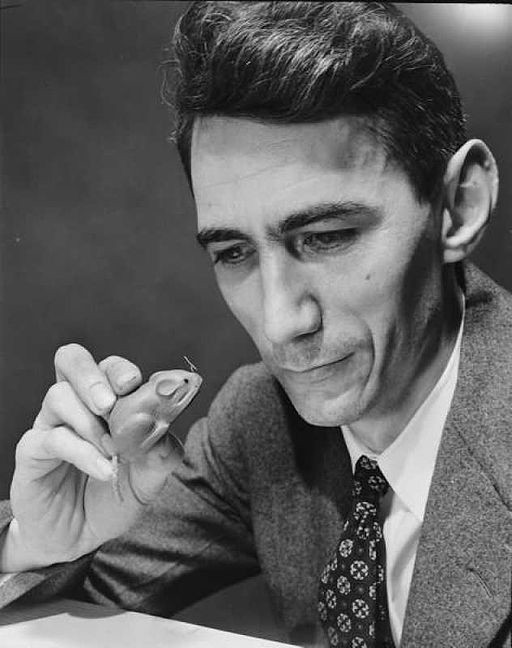I don’t imagine Claude Shannon was ever bored, not with the intellect of Einstein and the playful personality of a circus clown. He was the unicycling, juggling Bell Labs genius who co-created the first wearable and has rightly earned the title of the “Father of the Information Age.” (So, yes, we have some specific to blame.) The unicycle was a birthday gift from the scientist’s wife, Betty, who would struggle to come up with ideas for presents for her spouse, because what do you get for the man who has everything-–in his head?
Was mostly joking above about Shannon being to blame for modern problems related to information, but you have to wonder what he would have made of our ubiquitous surveillance, Russian bots, Fake News and some of the other ghosts he helped unloose.
Shannon was a notable figure in The Idea Factory but now Jimmy Soni and Rob Goodman have dedicated an entire volume to him, publishing A Mind at Play: How Claude Shannon Invented the Information Age. The authors just conducted a Reddit AMA. One exchange:
Question:
What can I take away from how Shannon thinks, works, and lives and apply today to think, work, or live better?
Jimmy Soni:
That’s actually one of the most interesting things about his life and work: There’s a lot for us to take away from it. Sometimes when you’re think of figures like Einstein or Turing, they seem like they’re on Mount Olympus–and that all of us mere mortals can study them from afar but not embrace the way they did their wok because it was so unique.
Shannon’s work had similar scientific force and impact, but he was also down-to-earth. A few of the lessons that stood out to us:
1) Learn to be by yourself and in quiet places — Shannon was an introvert, but we think contributed to his scientific imagination. He was comfortable being alone and thinking hard for long stretches of time. He also did this in places that lent themselves to that kind of thought: spartan bachelor apartments, an office whose door was usually closed. We can’t imagine him trying to bang out information theory at Starbucks.
2) Study many disciplines — Yes, Shannon was a train mathematician and engineer. But he was an equally skilled machinist and gadgeteer, one of the early pioneers of artificial intelligence, a unicyclist, a juggler, and a lot of other things. He had an omnivorous curiosity and it served him well. He was able to use all these disparate things to create the work that he did.
3) Don’t worry about external recognition so much — Shannon could barely be bothered about awards and honors. He found them amusing diversions from the work. Sometimes his wife or a mentor had to force him to actually go to the trouble of accepting awards. And even when he did, he did it with levity. (For instance, he hung all the honorary degrees he won from a rotating tie rack!). Why does this matter? Because he was running his own race. He wasn’t trying to go after a specific award or honor, so he was free to do what he did his entire life: let his curiosity wander to the places it wanted to go.
That’s just some of the lessons. We wrote more of them up here, and happy to go into any of these in further depth.
Let me add one more that I think about a lot: work with your hands. This was something Shannon did for basically his entire life. He would take things apart, put them back together, and see if he could improve on how they worked. Even at the very end stages of his life, when he was in a nursing home battling Alzheimer’s, he would take apart his walker and try to imagine a better design for it.
Why does that matter? Because I think it gave him a quality that one engineer described as “not only the ability to think about things but through things.” It was a powerful part of his work–and I think it’s something we might take for granted in our own.
My guess is that the problem-solving and tactile pieces of working with your hands offer some brain-enhancing effects. But I also think there’s a broader point about appreciation and craftsmanship. There’s a great book on the topic called Shopclass as Soulcraft that’s worth checking out.
I think Shannon could anticipate future robotics because he didn’t just write papers, he built robots. He could imagine an artificially intelligent world because he built an artificially intelligent mouse. I don’t know how to reclaim that sort of thing exactly, but I know it’s a powerful part of what made him who he was.•



